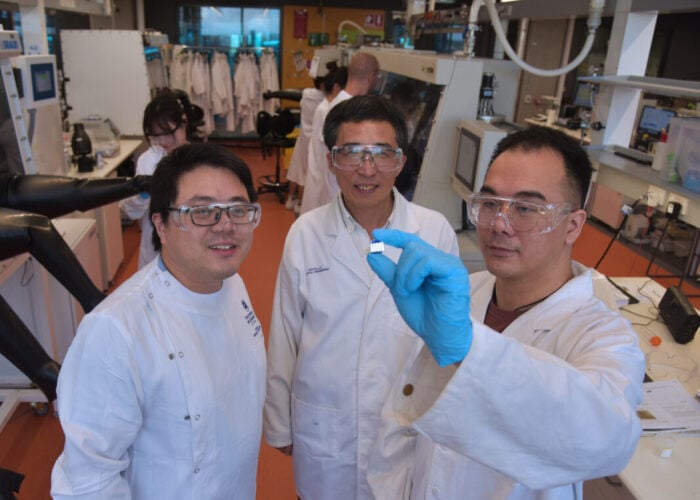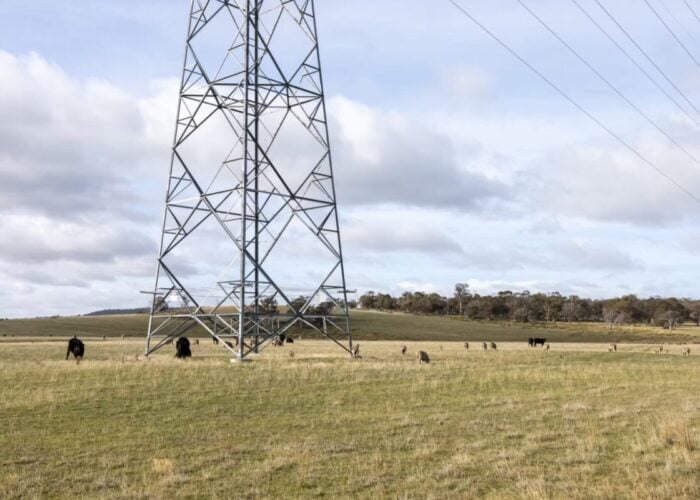GT Advanced Technologies (GTAT) has secured a major US$336 million polysilicon equipment and technology deal with Cosmos Chemicals Berhad as part of plans to build a 25,000MT integrated polysilicon plant in Sarawak, Malaysia.
According to GTAT, Cosmos Chemicals is currently in the process of securing financing for the major project, which is also being sponsored by Project Management & Development Company (PMD) of Saudi Arabia. Cosmos Chemicals is a subsidiary of Cosmos Petroleum & Mining, which is in turn an affiliate of PMD.
Unlock unlimited access for 12 whole months of distinctive global analysis
Photovoltaics International is now included.
- Regular insight and analysis of the industry’s biggest developments
- In-depth interviews with the industry’s leading figures
- Unlimited digital access to the PV Tech Power journal catalogue
- Unlimited digital access to the Photovoltaics International journal catalogue
- Access to more than 1,000 technical papers
- Discounts on Solar Media’s portfolio of events, in-person and virtual
Or continue reading this article for free
However, Johannes Bernreuter, head of the polysilicon market research firm Bernreuter Research told PV Tech he had doubts about the project.
“For the time being, I remain sceptical about the project,” noted Bernreuter. “Financing has still to be secured, and a starting capacity of 25,000MT is highly ambitious for a newcomer. Moreover, project developer PMD has also been involved in the project of Saudi Polysilicon, which has not got off the ground since 2009.”
The polysilicon project in Malaysia was previously estimated to cost at least US$1.6 billion with funding from the project expected to come from investors in the Middle East and Southeast Asia.
Dave Keck, executive vice president of GT's solar business said: “The polysilicon market is improving with spot prices on the rise and supply and demand coming into balance. This is a good time to begin construction of a new plant so that it comes online timed to rising prices. GT has a successful track record of helping new market entrants establish world-class polysilicon production operations. Our proven polysilicon technology gives customers the ability to quickly achieve nameplate production capacity for high quality, low-cost polysilicon.”
GTAT is expecting to provide its complete suite of polysilicon production equipment and technology for the project. Notably, GTAT said that the polysilicon plant would employ its high volume hydrochlorination system, which can produce enough TCS to support over 10,000MT of annual polysilicon production using a single hydrochlorination fluid bed reactor in conjunction with GT's latest TCS Siemens CVD reactors. Combined, GTAT claims the technology offers advanced low-cost polysilicon production.
Subject to Cosmos Chemicals obtaining financing, GTAT said that it expected the commissioning of engineering work to be the first phase of the development followed by a large equipment order.
“The addition of new polysilicon capacity from 2015 is one of the final parts of the equipment spending rebound jigsaw,” said Finlay Colville, vice president of NPD Solarbuzz to PV Tech. “With the phasing and timelines to add new polysilicon capacity much longer than any other stage in the c-Si value-chain, plant build needs to start now to meet the industry growth expected in 2015 and beyond.”
However, Colville believes the project could have a wider impact on the polysilicon market should the plant be built.
“Nobody has built a new polysilicon plant for some time, certainly not planned from ground up. And over the past couple of years, the likes of GT have certainly moved the bar forward in terms of tooling capability. As such, a new entrant, located in Southeast Asia, and using newer and better equipment than much of the legacy capacity in the industry today, may well be able to hit lower production costs. This could even force some of that legacy capacity to be taken offline, driving even more capex into the sector and possibly other new entrants,” added Colville.
Malaysia is fast becoming a major PV manufacturing hub outside China and Taiwan. Companies such as Hanwha Q CELLS are currently expanding capacity as well as monocrystalline wafer producer Solargiga, while the country is also home to SunPower, Panasonic and First Solar.







